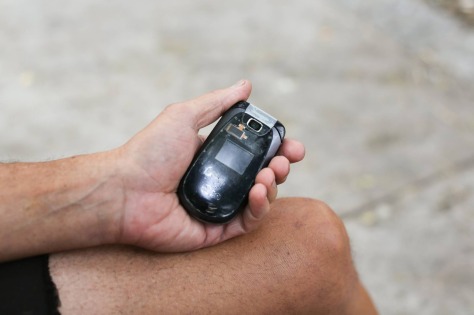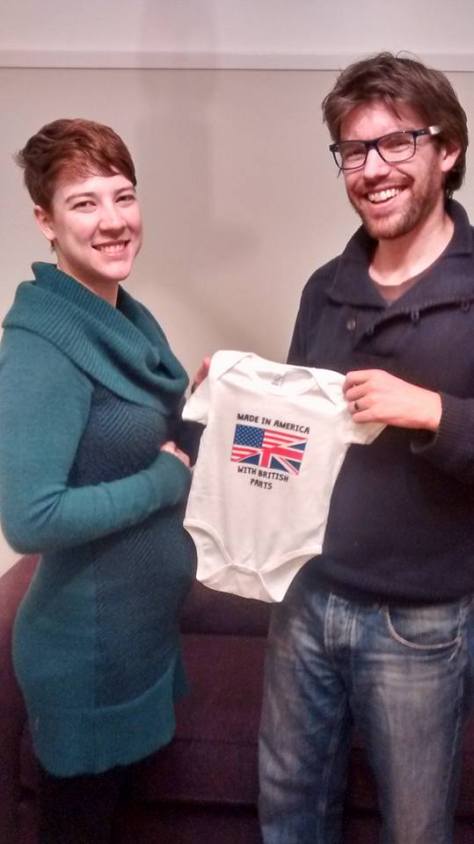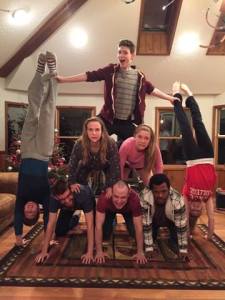“Who is that?” I asked, pointing at a picture of my husband.
“That’s my daddy!” She replied immediately. She then turned to me, “mama, when will he be home?”
We had only been hosting Hannah* for a week, but she had quickly given up on our names in favor of mama and daddy and had stolen our hearts just as fast.
We went from our normal pace (that of a relaxed couple living out in the suburbs with no kids, though 8 months pregnant) to the demanding pace of a 3 year old in the span of an hour after I met and returned home with Hannah, our first placement through Safe Families. Just a week later life resumed “normally” the day after we scrambled to get Hannah and her few bits of clothing, along with the toothbrush we bought her, to the cities in time for her mom to secure a spot in a family shelter. From the time we heard anything about the placement ending to the time Hannah was gone we had just 3 hours. I was at work for most of them. While the way it ended was stressful, the placement was anything but.
What has been amazing is the impact such a short time has had on us.
Now, we got possibly the easiest first placement possible. Hannah was sweet, energetic, well-behaved, and so, so lovable. I have been around foster care my whole life and know this is not always the case. My parents fostered and adopted children before I was even born. I don’t remember many times growing up where we didn’t have one or more extra kids running around. I know first hand that foster-care is hard stuff, but it is also beautiful. And it was our normal; I didn’t know anything different.
James and I have discussed fostering and adoption for the past 5 years. It is something I have always longed to do and something he has pushed himself to understand and embrace. While I wanted to do it he wanted to want to do it. We talked and prayed over it many, many times. I have been praying for the past couple years that he would develop the heart for it that I have.
In just a week with Hannah that prayer was answered.
When we learned about Safe Families I immediately wanted to apply to become a host family. SF essentially acts as a safety net for families who are struggling and do not have support around them. Families go through training to become ‘hosts’ and when a need arises they can offer to take whichever placements work for their current situation.
A SF placement is voluntary on the part of the parent/guardian who is placing the child (unlike foster care). It can last anywhere from a few days to several months. The goal of SF is to give the families the support they need to get to a place in life where it is healthy for them to be reunited with their children. In the meantime they help coordinated safe and loving homes for the children to stay.
A child might be placed for a few week while a single mother finds a job or for a few months while both parents sort through outstanding legal issues. The host families are encouraged to pursue relationships with the whole family in order to offer holistic support.
It’s messy work. But life is messy.
When the opportunity to apply for SFs came up I wanted to jump in and deal with logistics as we went. James, however, wanted us to figure out a few things before starting. I impatiently waited for things to get to a place where he felt it was a good time to begin pursuing it, it is not something I wanted to go into without both of us on board. After a few months we began the process, which took a few more months… and then waited another few months to be in a place job-wise where we could make it work. When the request for Hannah went out I knew we could make it work and James cautiously agreed to try. The request for a host family went out on Thursday and we had Hannah in our home by lunch on Friday. In our week with Hannah, James and I finally moved onto the same page. At the end of the week we debriefed and agreed that:
*Fostering is not so scary. It’s simply taking someone in and loving them as best you can for the time they are with you. It is simply saying “yes.” Yes to opening your heart and your home.
They won’t be perfect and you won’t be either. There are unknowns but they shouldn’t be an insurmountable barrier.
*Adoption is not so scary. There are not biological boundaries on love. Their lives may be more complicated, things will probably be harder in many ways, but at the and of the day they are children who deserve love and safety and life isn’t about finding the path of least resistance.
*Parenting is not so scary. This is good, considering how very pregnant I currently am. We enjoyed being “mom and dad” for a week and are more excited than ever to welcome baby Z into our family.
(We are very cognizant that it was a short time but I believe the things we learned are still valid. Also, I do not want to downplay the complexities of fostering and adoption, it is by no means easy or straightforward, but difficulty does not negate beauty!)
Yes, it was hard when Hannah left. Yes, it will be hard next time around too. But I would take the hard with the beauty any day.
If you are interested in becoming a host family or supporting Safe Families in some way drop us a message or check our their website: https://www.bethany.org/other-services/safe-families-for-children or facebook page: Safe Families For Children Minnesota
*Names are changed to protect anonymity

















